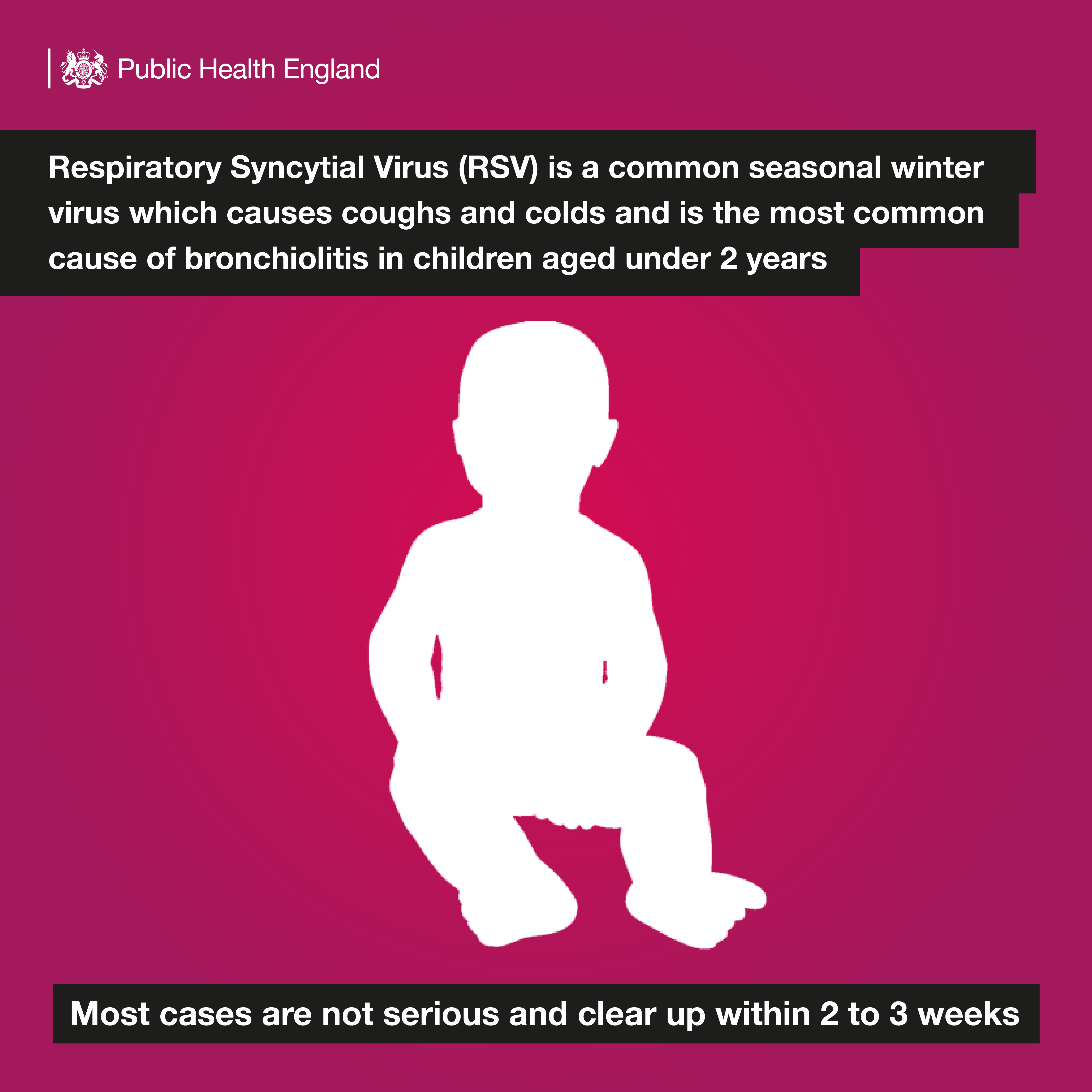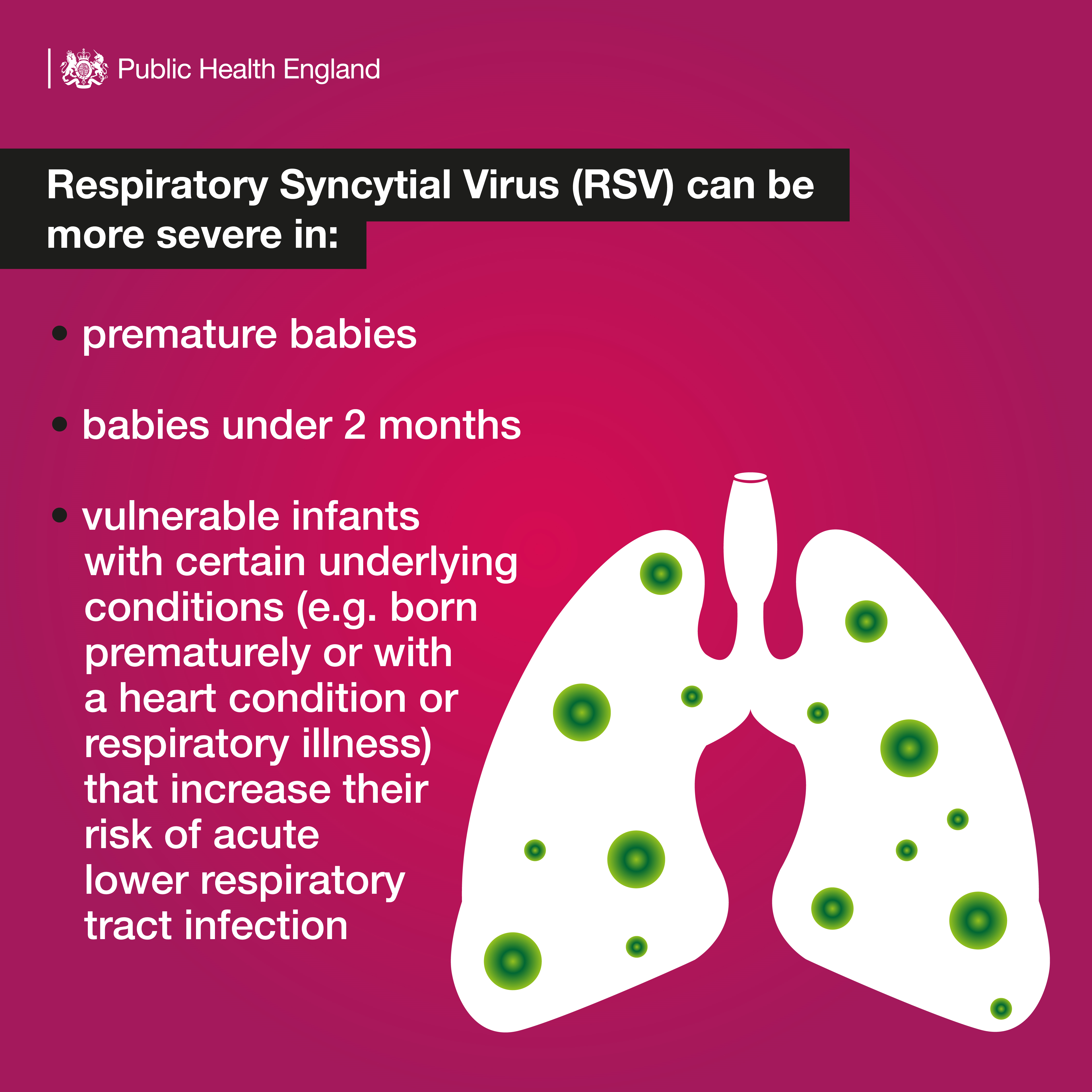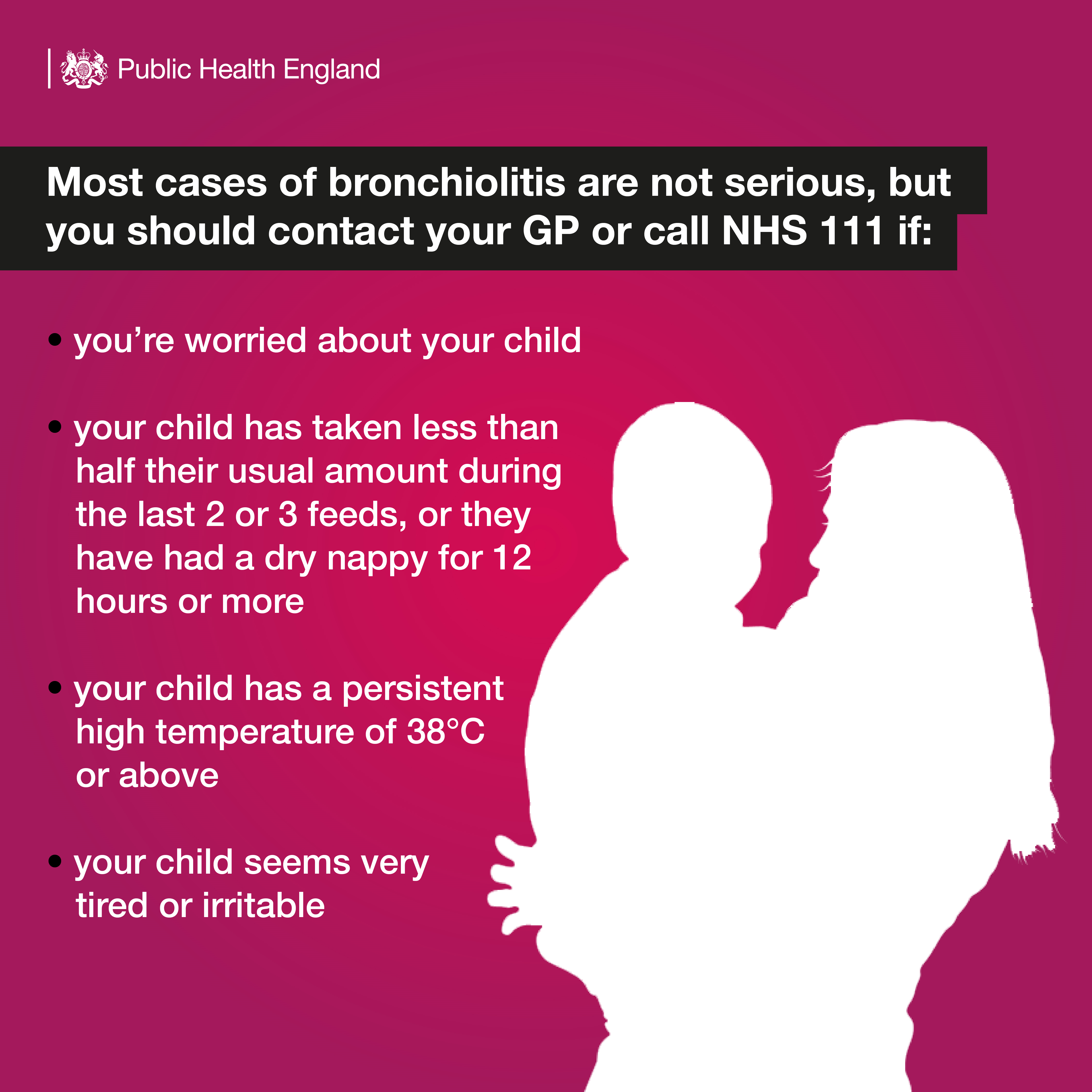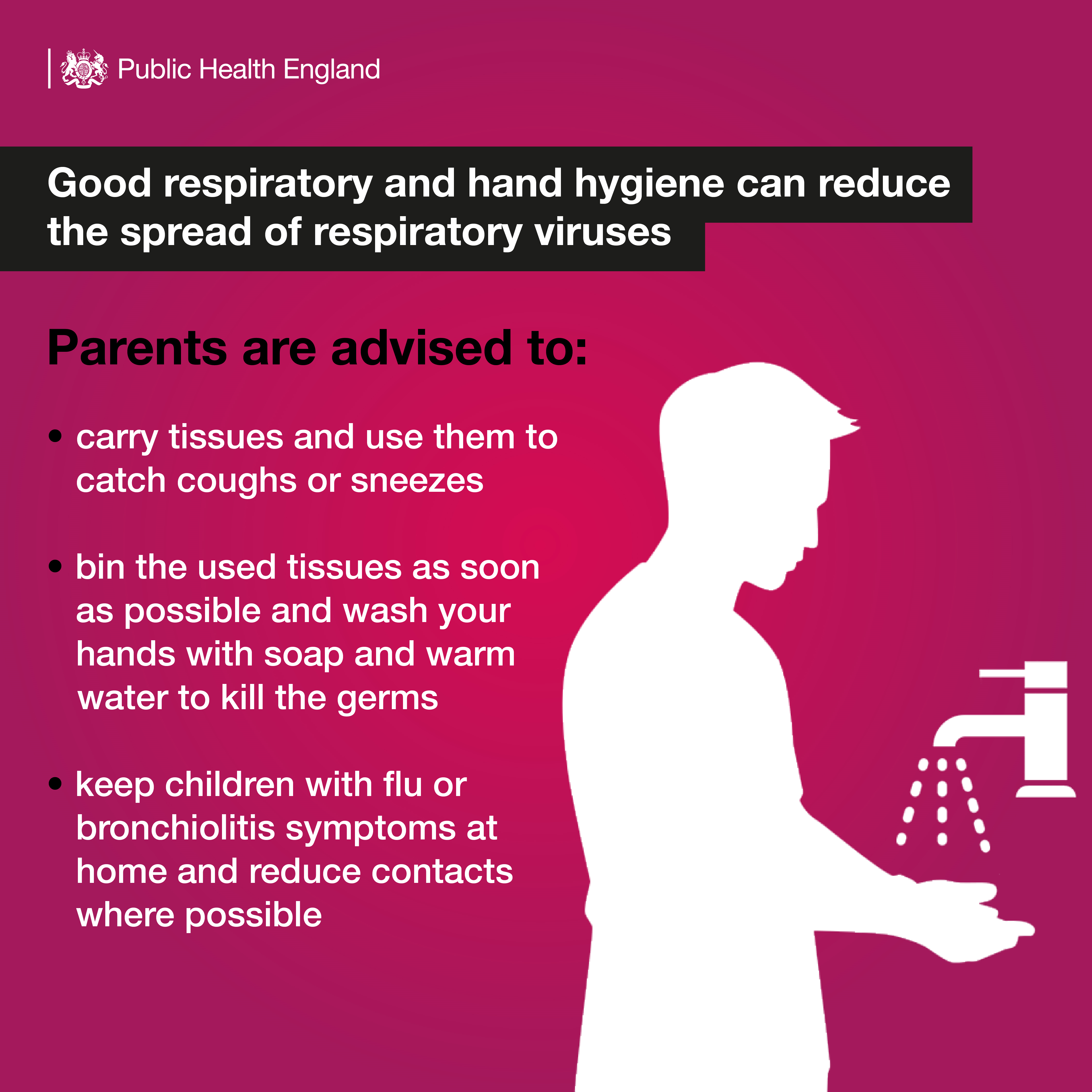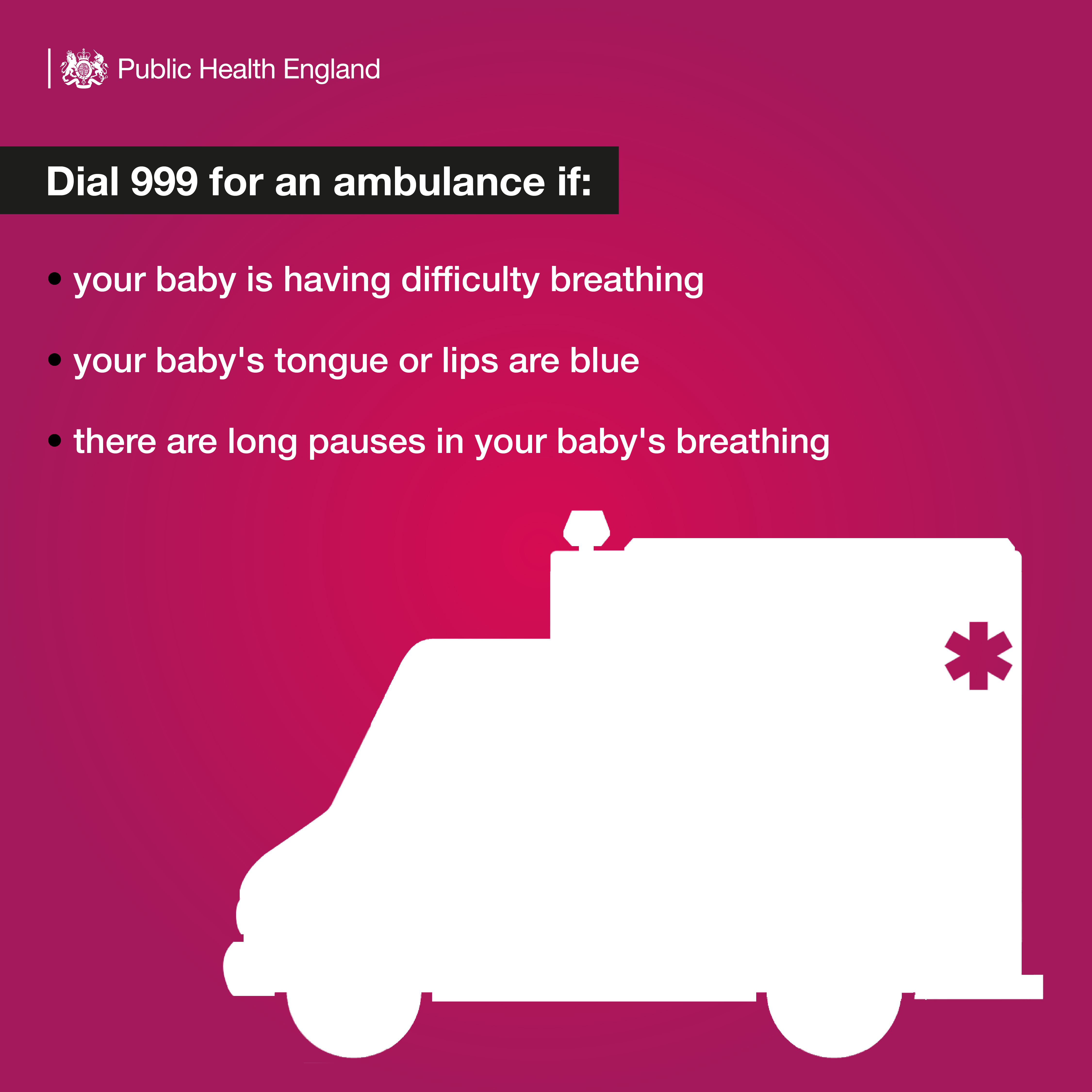Bronchiolitis and RSV
There are many common respiratory viruses seen in children, which most will have had by the time they turn 2.
However, in children under 2, the more serious consequences can lead to bronchiolitis, infection of the lower airways, that can make the airways inflamed and mucusy making it harder to breathe.
The early symptoms of bronchiolitis are similar to those of a common cold, such as a runny nose and a cough.
Further symptoms can develop over the next few days, and may include:
- a slight high temperature (fever)
- a dry and persistent cough
- difficulty feeding
- rapid or noisy breathing (wheezing)
- parents should seek emergency NHS care if their child become breathless – the most common symptom of severe RSV.
Most cases of bronchiolitis are not serious, but you should contact your GP or call NHS 111 if:
- you’re worried about your child
- your child has taken less than half their usual amount during the last 2 or 3 feeds, or they have had a dry nappy for 12 hours or more
- your child has a persistent high temperature of 38C or above
- your child seems very tired or irritable.
Dial 999 for an ambulance if:
- your baby is having difficulty breathing.
- your baby's tongue or lips are blue.
- there are long pauses in your baby's breathing.
Good respiratory and hand hygiene can reduce the spread of these infections. Parents are advised to carry tissues and use them to catch coughs or sneezes, bin the used tissues as soon as possible and wash your hands with soap and warm water to kill the germs.
Children with flu or bronchiolitis symptoms should stay home and reduce contacts where possible.
Most cases are not serious and clear up within 2 to 3 weeks, but the symptoms can be very worrying for parents. For some infants and babies, such as those born prematurely or with a heart condition, bronchiolitis can be more severe. NHS 111 or your GP can offer advice if any parent has concerns.
It is perfectly okay for parents to ask people with colds to keep away from newborn babies, particularly in the first two months, and for babies born prematurely.
Further information for parents can be found here.
With hospitals already under pressure, Boloh helpline can help you understand the key symptoms to look out for, what you can do to support your child at home and when to seek help. Contact Boloh if you need practical advice and support on:
- How to manage mild symptoms in children at home
- Best ways to seek medical support
- Registering with a GP surgery
- Contacting the NHS111 helpline
- Meeting your child’s needs, for example providing food, clothes, tech devices, household items and others
Contact: Telephone - 0800 151 2605 or email: boloh.helpline@barnardos.org.uk
Bliss, the charity for babies born premature or sick, have created an animation for parents to understand when their baby has more than a cold, and the steps they can take to seek medical support to help protect their baby, the animation can be found here. Further information on RSV can be found here.
Dr Shruti Jawahar Ganatra is a local Consultant Paediatrician. Watch her explain about the symptoms of bronchiolitis and when to get medical help for your child below:
Anna Lanwarne is a practice development nurse; watch her explain about the causes, effects and prevention of Bronchiolitis and RSV below:
